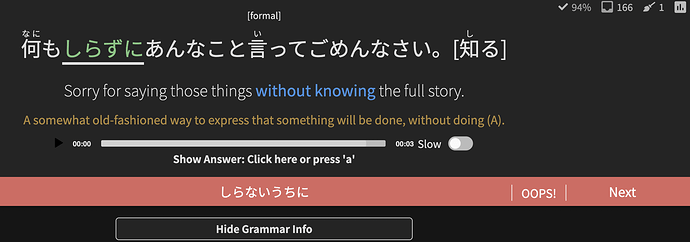I’m not too fussed by it because its just part of a cram session but would you say this is a valid way to translate the prompt into Japanese?
I get that the nuance is slightly different and what I wrote perhaps doesn’t exactly fit the prompt, but would you say this is another natural sounding way to get the same general point across?

